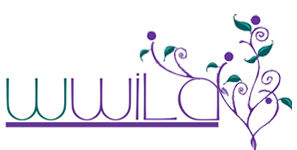Mental Health Supports or Information:
Phone 13 HEALTH or 13 43 25 84 for 24-hour assessment, referral, advice, and hospital and community health centre contact details.
CRISIS NUMBER – Mental Health Triage Service – 24hrs, 7 days a week, Phone 1300 642 255
https://www.qld.gov.au/health/mental-health/help-lines/services/index.html
Talk to your doctor (GP) about your concerns and ask for an assessment or referral. Some doctors have additional training and expertise in mental health.
Click here for Mental Health Services: Mental Health Services – WWILD – SVP Brisbane
Online Training Options Include:
WWILD Online Training
- Introduction to Intellectual Disability
- Responding to Disclosure of Sexual Violence
- Supporting Recovery from Trauma
Through my Eyes—Intellectual Disability Healthcare around the World— https://www.edx.org/course/through-eyes-intellectual-disability-uqx-able101x
ABLE201x Well and Able—Improving the Physical Health of People with Intellectual Disability
— https://www.edx.org/course/well-able-improving-physical-health-uqx-able201x
ABLE301x Able-Minded—Mental Health and People with Intellectual Disability—
https://www.edx.org/course/able-minded-mental-health-people-uqx-able301x
QCIDD/MIDAS’s YouTube channel— https://www.youtube.com/channel/UChCUpCHdvnHqAf8SBOuV_tA
Useful Resources
Intellectual Disability Mental Health First Aid Manual – Mental Health First Aid Australia
By Kitchener BA, Jorm AF, Kelly CM, Pappas, R, Frize, M. 2nd ed. Melbourne: Orygen Youth Health Research Centre; 2010 [online] Accessed 28/06/2011 This is a supplement to the 2nd Edition Standard Mental Health First Aid Manual. It is a resource for people supporting adults with intellectual disability who are experiencing an emerging mental health problem or mental health crisis.To access a copy of the manual contact the publishers below.
Contact details –
Phone: +61 3 9079 0200
Email: mhfa@mhfa.com.au
Website: https://mhfa.com.au/
Emerging Minds: Working and walking alongside Aboriginal and Torres Strait Islander children and young people: A practical guide for non-Indigenous workers
Atkinson, Judy (2020) Working and walking alongside Aboriginal and Torres Strait Islander children and young people: A practical guide for non-Indigenous workers, Australia, May 2020.
This resource is designed to provide information, concepts, practical skills and suggestions to guide non-Indigenous professionals working with Aboriginal and Torres Strait Islander children, young people and their families/communities, in particular those who have experienced trauma.
Mindfulness in the healing from trauma – Victim Connect blog page
Mindfulness can help in the journey of healing from the trauma of the past by engaging us in what is happening right now. If you are new to mindfulness but wanting to get started, this blog is for you. Click HERE to read.
Mental Health Assessment Tools:
These are helpful to have completed and take with you when you seek clinical/medical support for the person with intellectual disability. They provide some evidence for the need for a psychiatric assessment and treatment.
Depression in Adults with an Intellectual Disability Checklist for Carers or Supporters
http://www.cddh.monashhealth.org/
This is a checklist completed by carers, in particular paid support staff, on behalf of adults who are unable to report their own feelings or symptoms because of severe communication impairment. It provides carers with information that is needed by a medical practitioner to decide if an adult with an intellectual disability may be depressed or suffering from a related mental health problem or need referral to a mental health specialist or practitioner. Conditions of use and a request form for the checklist can be found at Centre for Developmental Disabilities Health Victoria.
The MOSS PAS system, formerly known as the PASS ADD system – is a set of assessment tools for undertaking mental health assessments with people with learning disabilities. It is designed to provide a smooth, reliable flow of information to provide a smooth, reliable flow of information on psychiatric symptoms from all those involved in an individual’s care, including family members, support staff and care staff.
Explanation of the Moss Pas system
They are also available in digital form at http://www.moss-pas.com>.
Reiss Screen – screens for mental health problems (dual diagnosis) in persons with intellectual disability by interviewing carers, teachers, work, supervisors, or parents.
http://www.reiss-screen.com/shortform.htm

